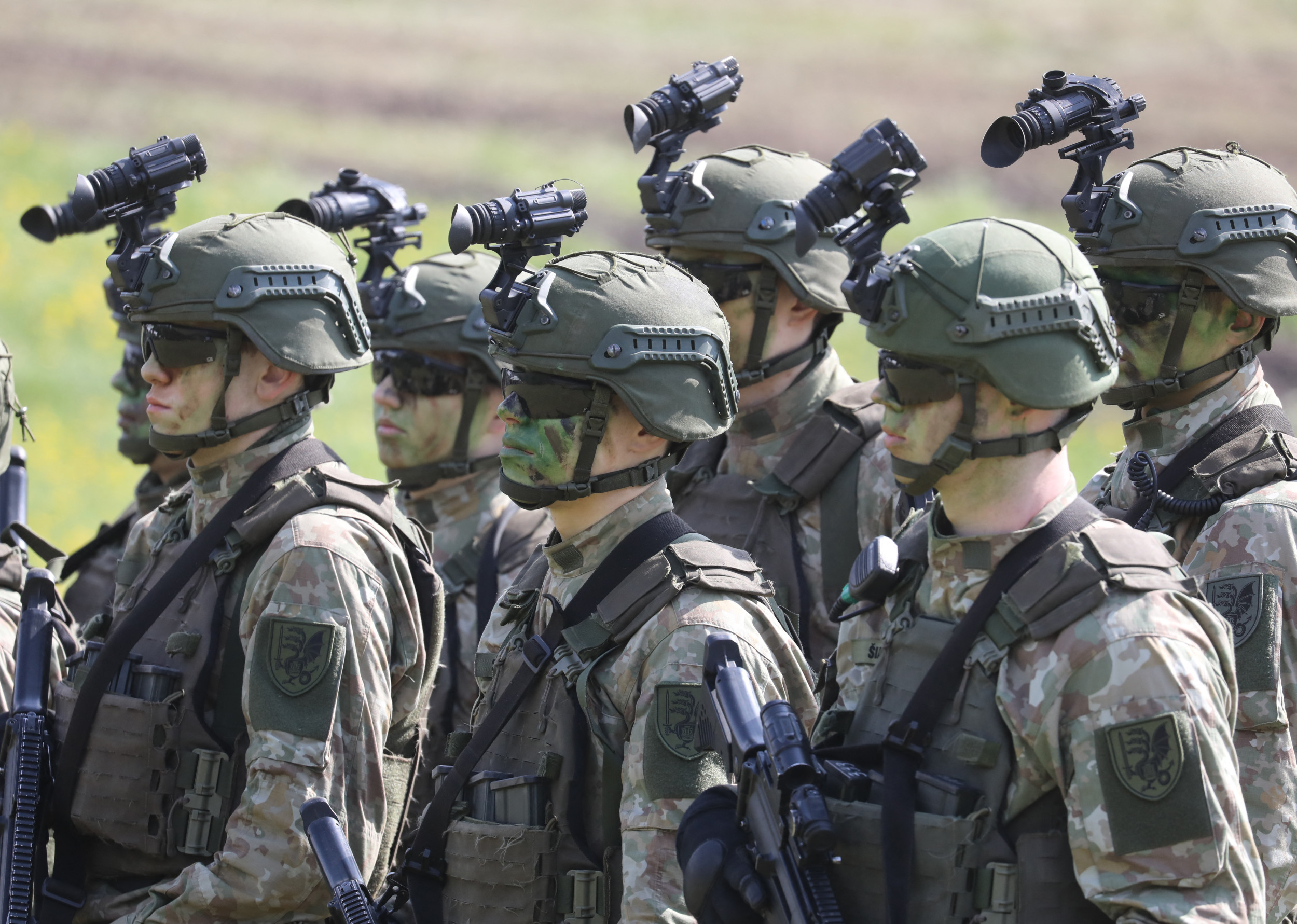American and British airstrikes have targeted Yemen's main oil-export terminal, the television station linked to the country's Houthi group has said.
Al-Masira television had reported on Saturday that two airstrikes had hit the port of Ras Issa, according to Reuters, although there were no other details and no immediate comment has been issued by the U.K. and the U.S. confirming the strikes. Newsweek contacted the Pentagon for comment on Saturday. The British Foreign Office told Newsweek that the Houthi TV statement was "not correct."
The alleged incident appears to be in response to a campaign of attacks by Houthi rebels on shipping in the Red Sea. These include a hit on the fuel tanker Marlin Luanda on Friday, 60 nautical miles southeast of Aden, Yemen's capital, that caused a fire that required U.S. Navy, French and Indian assistance.

The Iran-backed Houthis said they had targeted the vessel because of American-British aggression. The ship was British-registered, sails under the flag of the Marshall Islands and is operated on behalf of multinational firm Trafigura. The U.S. military said it had responded by destroying a Houthi anti-ship missile that was aimed into the Red Sea and ready to launch, Central Command said on X, formerly Twitter.
Since mid-November, the Iran-aligned Houthi militants have launched exploding drones and missiles at vessels in the Red Sea due to Israel's war against Hamas, which is backed by Tehran.
The attacks have mostly targeted container vessels that often have no clear links to Israel, causing many companies to redirect their ships from the key route for world trade.
However, fears have grown of a wider regional conflict after the U.S. and the U.K. conducted air and naval strikes against more than 60 Houthi targets on January 11, which included air-defense radars, runways and launch sites.
The U.S. followed up this launch of over 100 precision-guided munitions—including Tomahawk cruise missiles (TLAM)—with further strikes inside Yemen.
However, in a report released on January 19, the think tank Defense Priorities, which advocates for restraint in U.S. foreign policy, said that there is "no credible military option that will guarantee a cessation of Houthi attacks on ships in the Red Sea."
Meanwhile, there are growing calls for lasers to be used on vessels to counter the threat posed by drones and missiles fired by the Houthis.
Vice Adm. Brendan McLane told reporters that it was frustrating that high-energy lasers, or HELs, and high-power microwaves, or HPMs, had not entered the surface fleet and the broader military in a meaningful way, global website and magazine Defense News reported.
Against Houthi targets, McLane said, according to the publication, "Some of the systems that we have can be effective."
Uncommon Knowledge
Newsweek is committed to challenging conventional wisdom and finding connections in the search for common ground.
Newsweek is committed to challenging conventional wisdom and finding connections in the search for common ground.
About the writer
Brendan Cole is a Newsweek Senior News Reporter based in London, UK. His focus is Russia and Ukraine, in particular ... Read more
To read how Newsweek uses AI as a newsroom tool, Click here.





